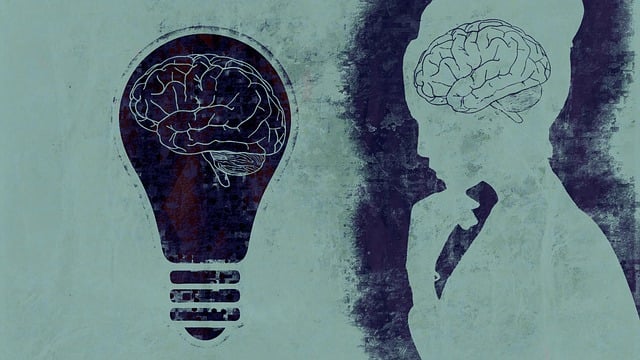Early intervention through specialized therapy and trauma-informed care is crucial for young sexual abuse survivors, addressing long-term mental health issues like anxiety and depression. Tailored therapy sessions, emotional regulation techniques in education, and community outreach can detect and support vulnerable children promptly. Age-appropriate curriculum focuses on building resilience, open communication, and safe spaces using simple narratives, interactive activities, confidence-boosting exercises, and stress management workshops. Integrating Trauma-Informed Practices in schools creates healing environments that enhance self-esteem and provide essential trauma support services. Teachers play a vital role in identifying trauma signs and offering consistent, empathetic support to ensure academic and emotional growth.
Mental health education is a powerful tool for empowering young minds, especially those who have experienced sexual abuse. This article delves into the critical components of designing effective programs, focusing on early intervention strategies. We explore how age-appropriate curriculum can help vulnerable children process trauma, with an emphasis on trauma-informed practices in educational settings. By understanding the impact of sexual abuse, educators can foster safe environments, providing essential support for young survivors and promoting their holistic development.
- Understanding the Impact of Sexual Abuse on Young Minds
- The Role of Mental Health Education in Early Intervention
- Designing Age-Appropriate Curriculum for Vulnerable Children
- Incorporating Trauma-Informed Practices in Educational Settings
- Strategies for Facilitating Safe and Supportive Learning Environments
Understanding the Impact of Sexual Abuse on Young Minds

The impact of sexual abuse on young minds is profound and far-reaching, often leading to long-term mental health issues if left unaddressed. Children who have experienced sexual abuse may exhibit a range of behavioral and emotional problems, including anxiety, depression, and difficulties in forming healthy relationships. Early intervention and specialized therapy for young children sexual abuse survivors are crucial in mitigating these effects.
One effective approach is incorporating trauma-informed care into mental health education programs. This involves teaching strategies for emotional regulation and positive thinking to help children process their experiences and develop coping mechanisms. Community outreach program implementation can also facilitate early detection and support, ensuring that vulnerable young individuals receive the necessary therapy for sexual abuse survivors promptly.
The Role of Mental Health Education in Early Intervention

Early intervention is a pivotal aspect of mental health education, especially when addressing issues like trauma and its long-lasting effects on young individuals. Mental health programs designed for children, particularly those who have experienced sexual abuse, play a crucial role in fostering resilience and promoting healthy coping mechanisms. By implementing therapy sessions tailored to their age and experiences, professionals can help young survivors process their traumas effectively. This early intervention is vital in preventing the escalation of mental illness and reducing the stigma associated with seeking support.
Through mental wellness coaching programs, children can learn mind over matter principles, enabling them to develop a positive mindset and build emotional resilience. These initiatives focus on educating both the child and their caregivers, ensuring a supportive environment that encourages open communication about mental health. Such efforts are essential in breaking down barriers and promoting understanding, which is particularly beneficial for sexual abuse survivors navigating their mental wellness journey.
Designing Age-Appropriate Curriculum for Vulnerable Children

Designing age-appropriate curriculum for vulnerable children is a delicate task that requires meticulous consideration. When creating mental health education programs for young individuals who may be sexual abuse survivors, it’s crucial to tailor the content and delivery methods to their developmental stage. For instance, therapy for young children must use simple, engaging narratives and interactive activities to convey complex emotional concepts. This approach not only captures their attention but also facilitates better comprehension and processing of difficult topics.
Incorporating strategies like confidence-boosting exercises and conflict resolution techniques suited for their age group can significantly contribute to these children’s healing process. Stress management workshops designed specifically for this demographic should focus on normalizing emotions, teaching coping mechanisms, and fostering a safe space where they can express themselves without judgment. Such tailored interventions are vital in helping young sexual abuse survivors develop resilience and build healthy relationships with themselves and others.
Incorporating Trauma-Informed Practices in Educational Settings

Incorporating Trauma-Informed Practices in Educational Settings is a vital component of effective Mental Health Education Programs Design, especially when addressing the unique needs of young children who have experienced sexual abuse. These practices recognize that trauma impacts not just the mind but also shapes a child’s overall development and behavior. By integrating therapy for young children sexual abuse survivors into school environments, educational institutions can foster a safe space for healing.
Mental Health Education Programs Design should focus on enhancing self-esteem improvement in these students while providing essential trauma support services. This approach ensures that the learning environment accommodates the emotional and psychological challenges faced by such children. Teachers and staff members play a crucial role in identifying signs of trauma and responding appropriately, ensuring that every student receives the necessary support to thrive academically and emotionally.
Strategies for Facilitating Safe and Supportive Learning Environments

Creating safe spaces is paramount when designing mental health education programs for young children who are sexual abuse survivors. These environments must foster trust and encourage open communication, allowing students to feel secure while sharing their experiences and emotions. Teachers and facilitators play a crucial role in establishing this safety by maintaining confidentiality, ensuring consistent support, and modeling empathy. Incorporating activities that promote active listening and non-judgmental attitudes further strengthens the supportive atmosphere.
Implementing evidence-based therapy techniques tailored for child survivors is essential. This can include trauma-focused cognitive-behavioral therapy (TF-CBT) to help children process and manage traumatic memories effectively. Additionally, integrating stress reduction methods, such as mindfulness exercises and self-care practices, enables students to develop healthy coping strategies. By combining these approaches, the program facilitates not only the healing process but also empowers young individuals with lifelong skills for managing their mental well-being.
Mental health education programs play a pivotal role in supporting young minds affected by sexual abuse. By incorporating age-appropriate curriculum, trauma-informed practices, and strategies for creating safe spaces, we can empower educators to facilitate healing and enable children to thrive. These initiatives not only foster early intervention but also provide essential tools for vulnerable kids to navigate their experiences and seek therapy if needed, ensuring they receive the care they deserve as sexual abuse survivors.









